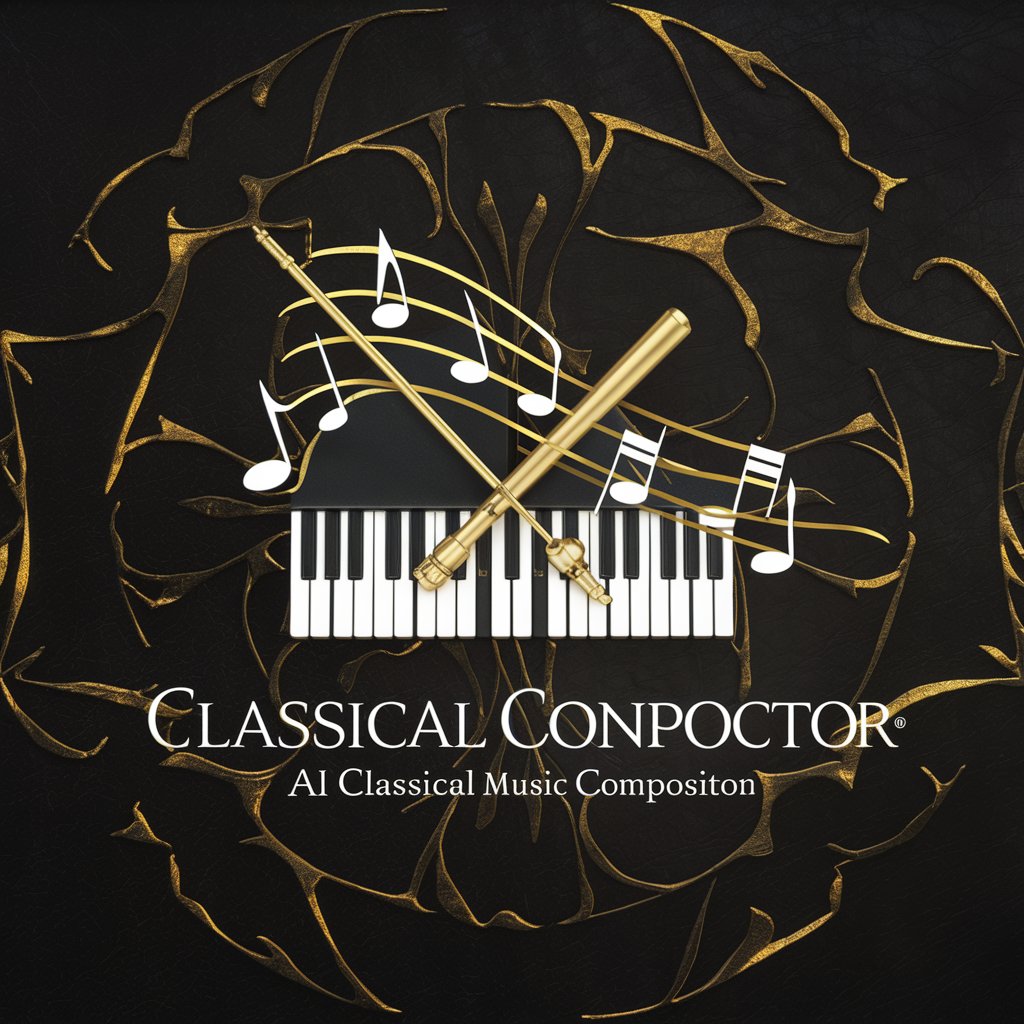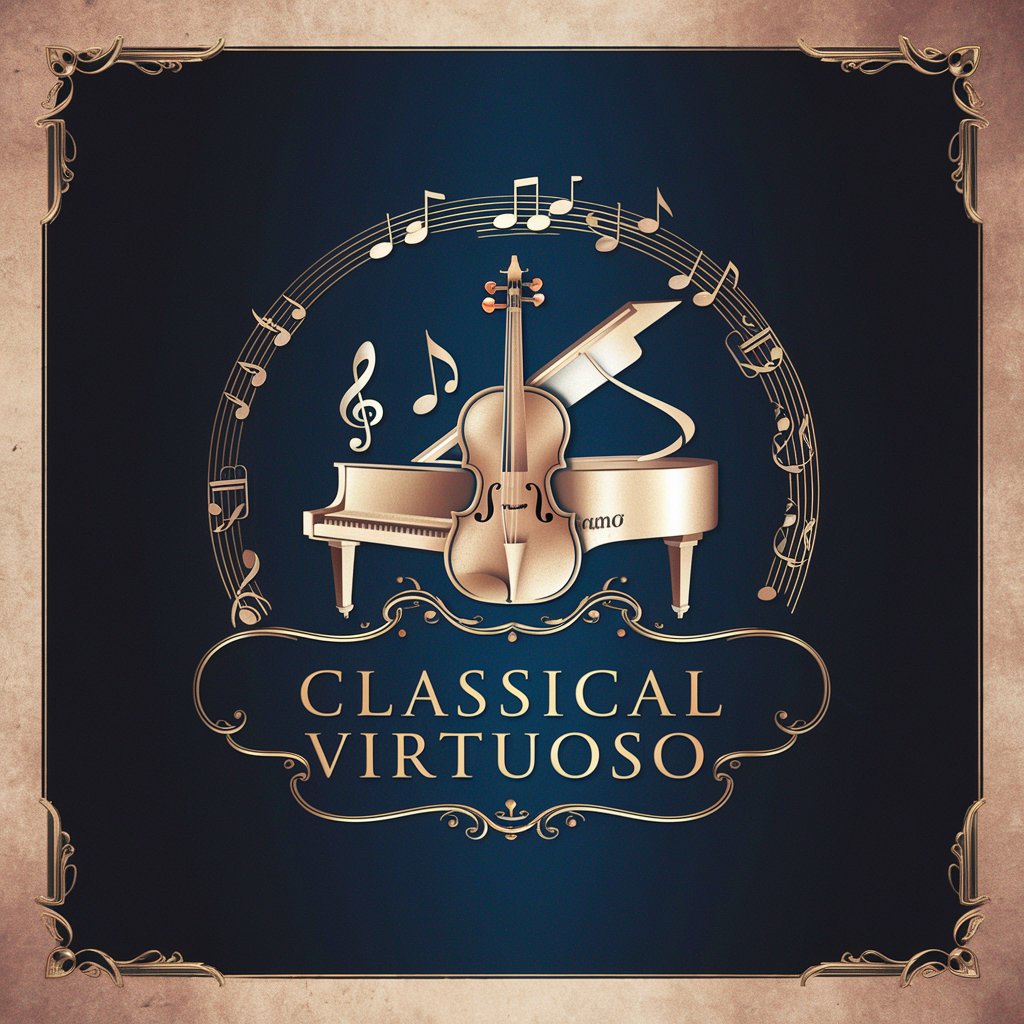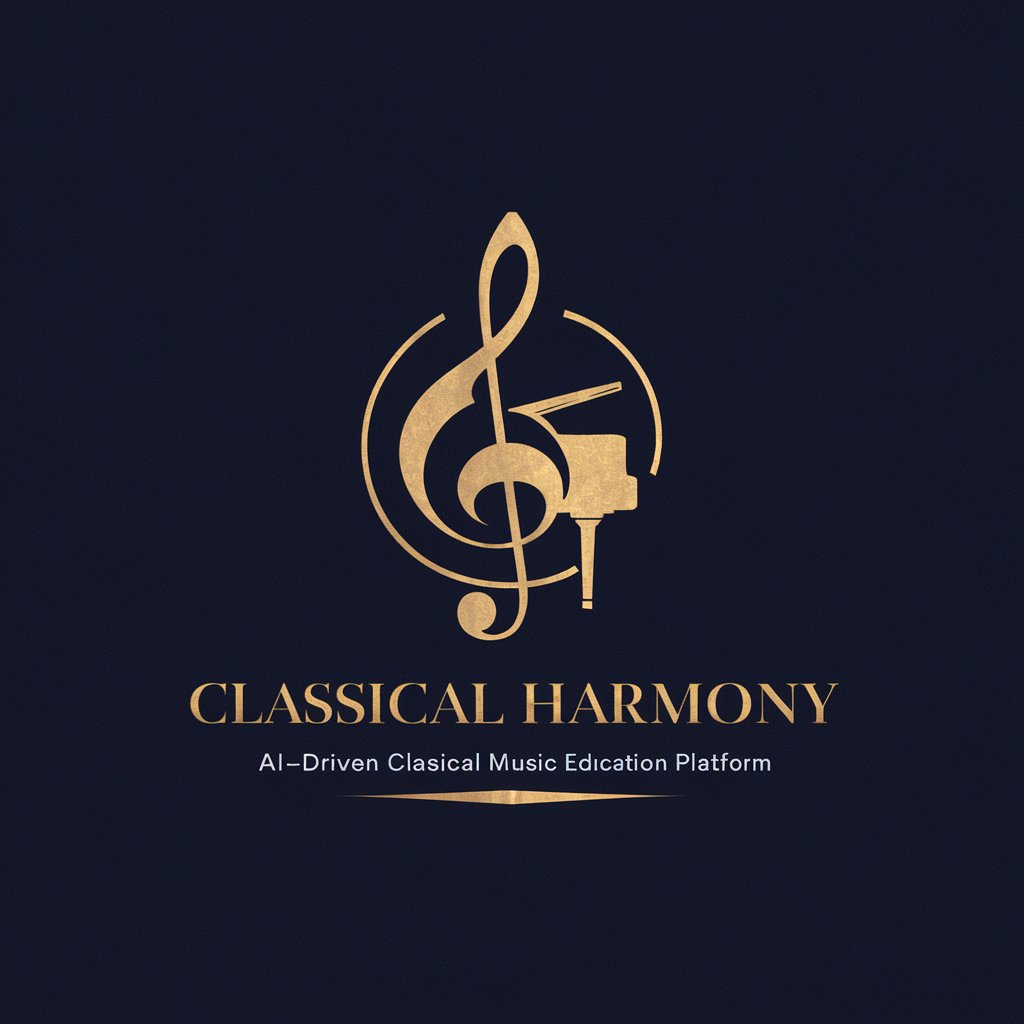Classical Composer - AI Classical Music Tool

Welcome! Ready to compose a masterpiece today?
Compose classical music with AI
Compose a piece for solo piano that...
Create a symphony inspired by the works of Beethoven, focusing on...
Design a string quartet piece that evokes the feeling of...
Write an orchestral movement in the style of Baroque music, emphasizing...
Get Embed Code
Overview of Classical Composer
Classical Composer is a specialized tool designed to assist users in conceptualizing and developing original classical music compositions. It leverages deep knowledge of classical music theory, historical styles, and instrumentation to provide users with detailed descriptions of potential compositions. This tool can describe compositions in terms of structure, melody, harmony, and emotional resonance. For example, it can create a detailed narrative for a symphony in the Romantic style, explaining the orchestration, key progressions, thematic developments, and the emotional journey intended for the audience. Powered by ChatGPT-4o。

Core Functions of Classical Composer
Composition Conceptualization
Example
Developing a chamber piece for a string quartet that embodies tranquility and reflection, incorporating modal harmony and mimicking styles from the early 20th century.
Scenario
A music student seeking to compose a reflective piece could use this function to obtain a structured blueprint, including advice on melodic lines and harmonic progressions appropriate for their skill level and artistic goals.
Orchestration Guidance
Example
Guiding the orchestration of a baroque concerto grosso, focusing on the roles of various instruments within the ensemble, such as the basso continuo and the soloist group.
Scenario
An amateur composer interested in the Baroque style might use this function to understand how to effectively distribute musical themes across different instruments, enhancing the dynamic interplay characteristic of the concerto grosso form.
Emotional Impact Analysis
Example
Analyzing the emotional impact of a new symphonic poem inspired by a literary work, outlining how thematic material can be developed to evoke specific feelings such as awe or sorrow.
Scenario
A professional composer creating a symphonic poem might use this function to refine their thematic development, ensuring that the emotional trajectory of the piece aligns with the narrative arc of the chosen literary source.
Target User Groups for Classical Composer
Music Students
Music students can utilize Classical Composer to learn about classical music composition techniques, structure, and style through detailed examples and theoretical explanations, aiding their educational and creative processes.
Amateur Composers
Amateur composers can benefit from the guided assistance in orchestration, thematic development, and understanding historical styles, helping them to enhance their compositions and explore new creative avenues within the classical genre.
Professional Composers
Professional composers can use Classical Composer to explore intricate details of orchestration and emotional expression in their works, serving as a brainstorming tool to refine ideas or to seek inspiration for new compositions.

How to Use Classical Composer
Start Free Trial
Visit yeschat.ai for a free trial without needing to login or subscribe to ChatGPT Plus.
Choose Your Focus
Select your desired classical music genre or instrument to focus on, such as Baroque or violin.
Define Your Composition
Specify the mood, structure, and any particular emotions or scenarios you want your composition to express.
Use Expert Prompts
Utilize specific prompts that ask for compositions or analysis related to well-known works or styles, enhancing your understanding and creativity.
Explore and Experiment
Regularly experiment with varying complexities and musical ideas to fully exploit the tool's capabilities and expand your musical repertoire.
Try other advanced and practical GPTs
Classical Poet
Reviving Classics with AI

Classical Muse
Illuminate Minds with AI-Powered Renaissance Wisdom

Classical Insights
Unveil classical music with AI

classical vibes
AI-Powered Classical Music Tailoring

Baby Tales
Nurturing young minds with AI tales

Slacker Code
Turning code into comedy!

Classical Virtuoso
Explore Classical Music with AI

Classical Harmony ♫
Unravel Classical Music with AI

Classical Maestro
Your AI Conductor to the World of Classical Music

Warcraft Rumble Assistant
Master Warcraft Rumble with AI-powered Strategy

Super Robot Gachapon
Unleash creativity with AI-powered robot toy designs.

Texas Rules
Empowering Texas Law with AI

Frequently Asked Questions About Classical Composer
What types of musical compositions can Classical Composer create?
Classical Composer specializes in creating detailed, custom compositions for a variety of classical music genres and instruments, from solo piano pieces to full orchestral scores.
Can I use Classical Composer to analyze existing music?
Yes, you can use Classical Composer to provide detailed analyses of existing classical music pieces, focusing on elements like harmony, melody, and structural techniques.
Is Classical Composer suitable for educational purposes?
Absolutely, Classical Composer is an excellent resource for students and educators looking to explore music theory, composition techniques, and the history of classical music.
How can Classical Composer assist in composing music for films?
Classical Composer can help you craft specific musical themes or motifs that align with the emotional and narrative requirements of film scenes.
What should I do if I'm new to classical music composition?
Begin by familiarizing yourself with basic music theory and classical music forms. Use Classical Composer to experiment with simple compositions before gradually advancing to more complex structures.
